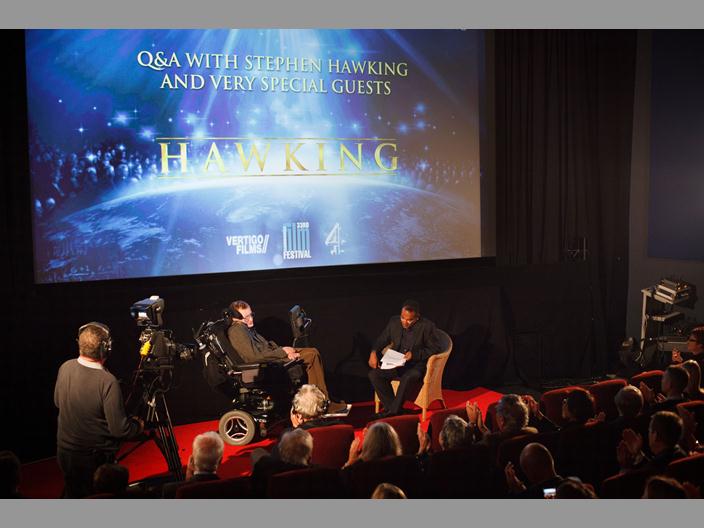Stephen Hawking: It is theoretically possible to copy brain information to a computer

A few days ago, the 33rd Cambridge Film Festival opened with a Hawking documentary about the life of Stephen Hawking. The event was accompanied by a press conference broadcast immediately in 70 cinemas in England and Ireland, during which 71-year-old Professor Hawking answered questions; Sir Richard Branson (head of Virgin Galactic, a suborbital commercial flight company), Morgan Freeman (headliner for a number of space-based documentary series, in particular Discovery: Through Space and Time with Morgan Freeman , if you haven’t already) and the team of the series "The Big Bang Theory" (for obvious reasons).
In addition to the movie itself, which is available on iTunesHawking gave several answers to interesting questions regarding such a quivering thing as potential human immortality, without detracting, however, from the characteristic scientific skepticism on this issue.
In particular, he spoke on the issue of life after death as follows:
I think that the brain is like a computer with a mind program, so it is theoretically possible to copy the brain to a computer and thus provide one of the forms of life after death ... However, this lies far beyond our current capabilities. I think that life after death is a fairy tale for people who are afraid of the dark.
Original
I think the brain is like a program in the mind which is like a computer, so it's theoretically possible to copy the brain onto a computer and so provide a form of life after death ... However, this is way beyond our present capabilities. I think the conventional afterlife is a fairy tale for people afraid of the dark
I think the brain is like a program in the mind which is like a computer, so it's theoretically possible to copy the brain onto a computer and so provide a form of life after death ... However, this is way beyond our present capabilities. I think the conventional afterlife is a fairy tale for people afraid of the dark
In fairness, it is worth noting that Hawking’s point of view on the “computerization” (at least in today's understanding of computers) of human consciousness is far from the only one. On this account there is a brilliant book by Sir Roger Penrose, “The New Mind of the King,” which examines “an idea that is based on the assumption that consciousness is inexplicable at the level of classical mechanics and can only be explained with the use of the postulates of quantum mechanics, the phenomena of superposition, quantum entanglement and others. ”
[ Source ]
